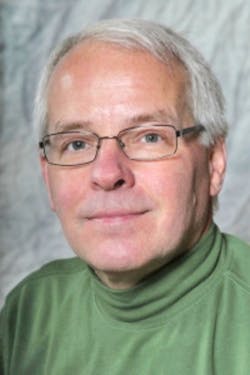Cambridge University has established a new center to try to influence the ethical development of artificial intelligence. The Wall Street Journal quotes Professor Huw Price, the university’s Bertrand Russell Professor of Philosophy, as saying, “As a species, we need a successful transition to an era in which we share the planet with high-level, non-biological intelligence. We don’t know how far away that is, but we can be pretty confident that it’s in our future. Our challenge is to make sure that goes well.” Price will direct the new center.
At one time, “soccer moms” constituted a significant political constituency in American presidential elections. Next year, “cybercitizens” might take on the role of the soccer moms, according to Thomas Z. Freedman, a consultant and former senior advisor to President Bill Clinton. In Politico, he writes that in the 2014 midterms politically active cybervoters who spend more than six hours per day on the Internet made up a quarter of the voting block.
A UK scientist has developed what’s said to be the fastest THz modulator yet—able to modulate a THz beam to 60% depth at 40 MHz. Professor Geoff Nash of the University of Exeter told Electronics Weekly, “40 MHz is not fast compared with telecoms modulators, but it is slightly better than state-of-the-art at THz.”
YouTube is ready to challenge Netflix in the premium TV movie market, according to Broadband TV News. The move would extend YouTube’s reach beyond short-form content.
Toshiba may spin off its PC business, the Wall Street Journal reports. Rumor has it that the business might merge with Vaio, the former Sony unit, although a Vaio spokeswoman called that “complete speculation.”
About the Author

Rick Nelson
Contributing Editor
Rick is currently Contributing Technical Editor. He was Executive Editor for EE in 2011-2018. Previously he served on several publications, including EDN and Vision Systems Design, and has received awards for signed editorials from the American Society of Business Publication Editors. He began as a design engineer at General Electric and Litton Industries and earned a BSEE degree from Penn State.
